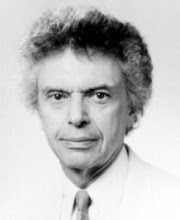Freedom, Imagination, and Creativity
In his article (April 27, 2007, New York Times), "China Needs an Einstein. So Do We," Thomas Friedman raises the questions about the relationship of freedom and creativity. Referring to Walter Isaacson's new biography of Albert Einstein, Einstein: His Life and Universe, Friedman speculates on Einstein's comment about the importance of imagination over knowledge. Einstein also thought that the freest society with the most rebellious thinking would be the most creative. Certainly, a shift in educational focus would probably contribute to fostering creativity and innovation in future scientists and mathematicians. However, another important, personal factor needs to be considered. As Alfred Adler pointed out, the psychological restriction of a style of life also inhibits creativity. Dissolving that style of life through depth psychotherapy can re-awaken and stimulate the creative power of an individual. Abraham Maslow affirmed this perspective in his writings about creativity. An entire culture may be oppressed by a totalitarian government, but an individual may also be trapped within the confines of an imperious style of life and fictional final goal.


<< Home